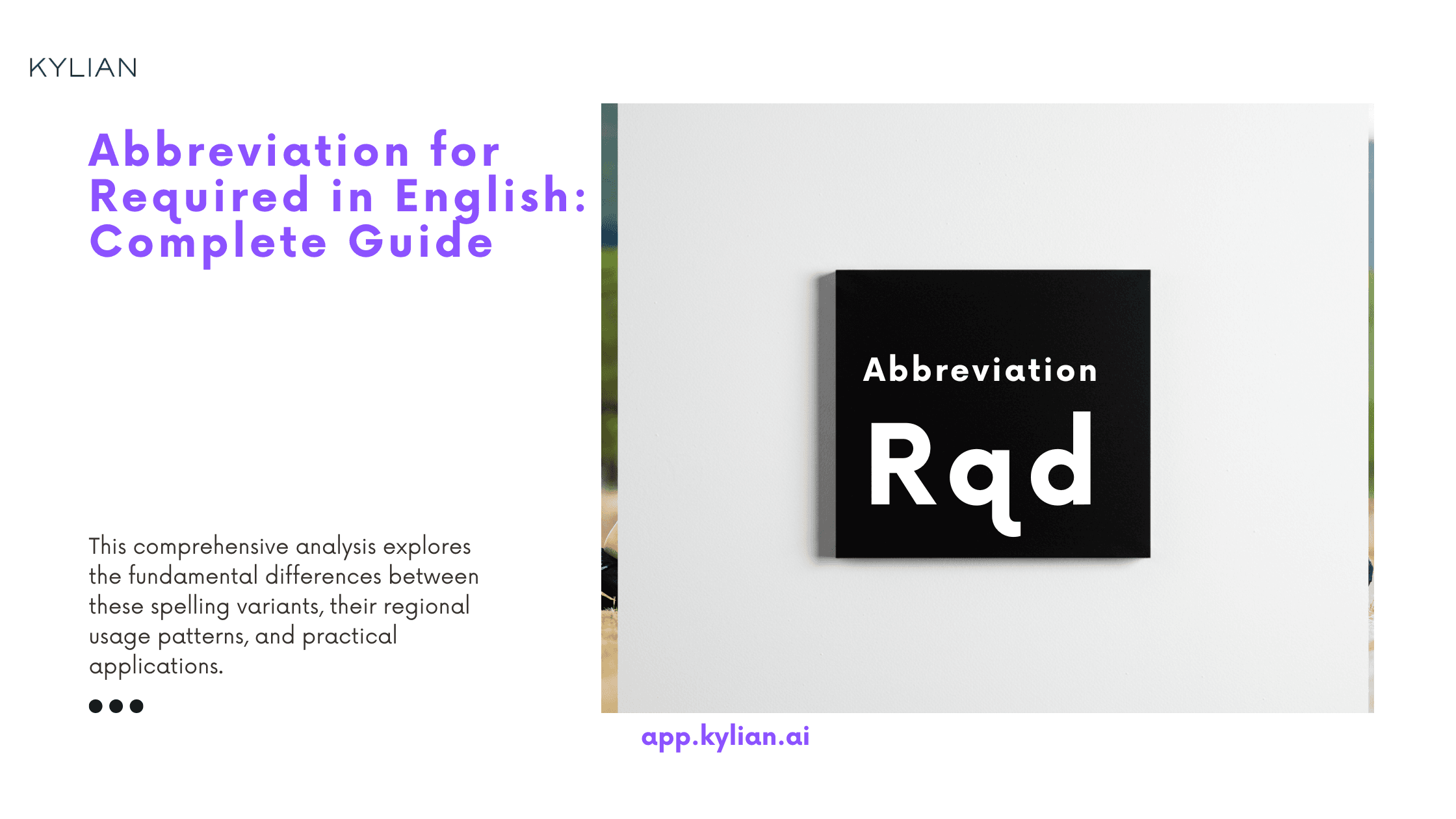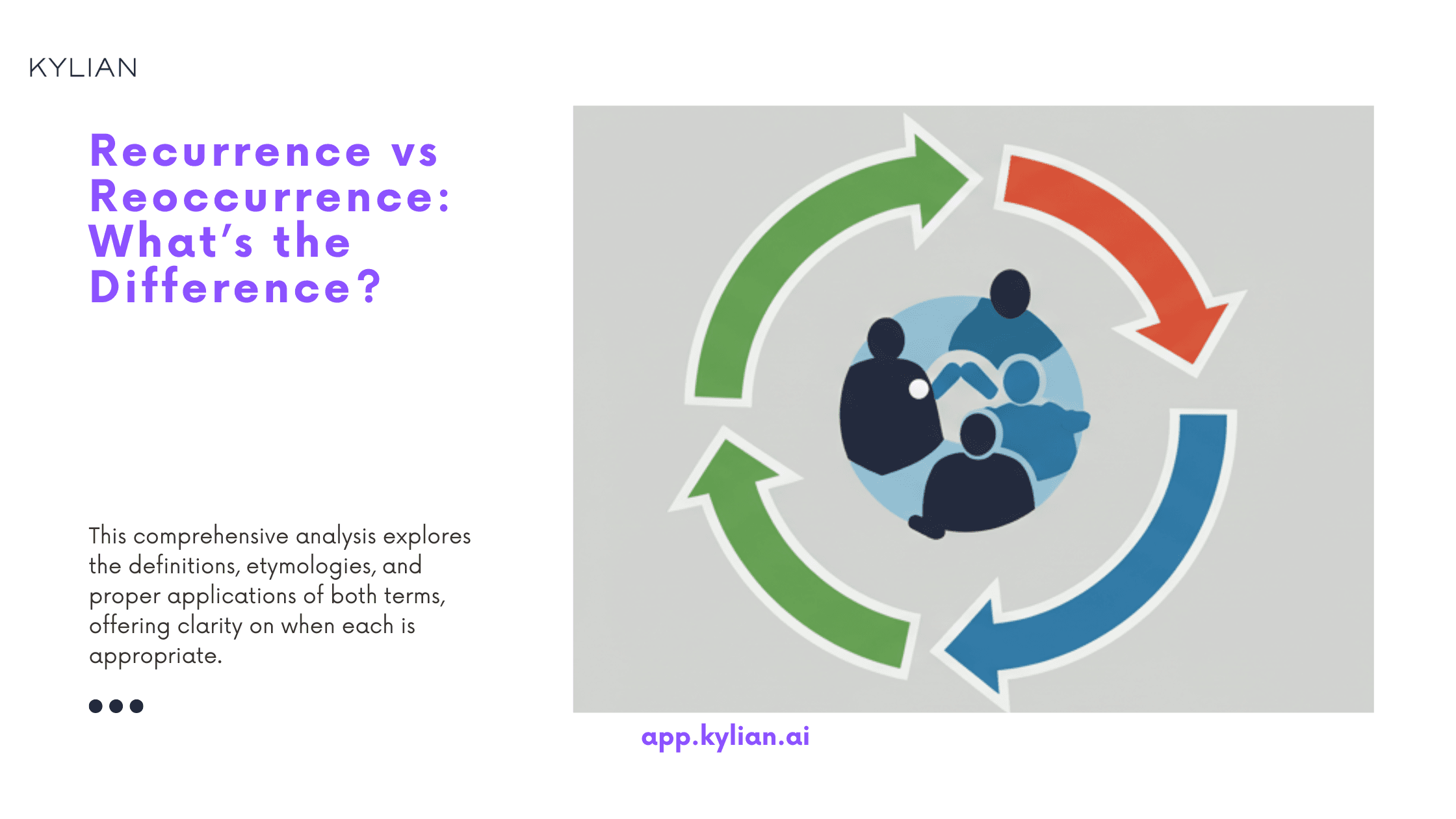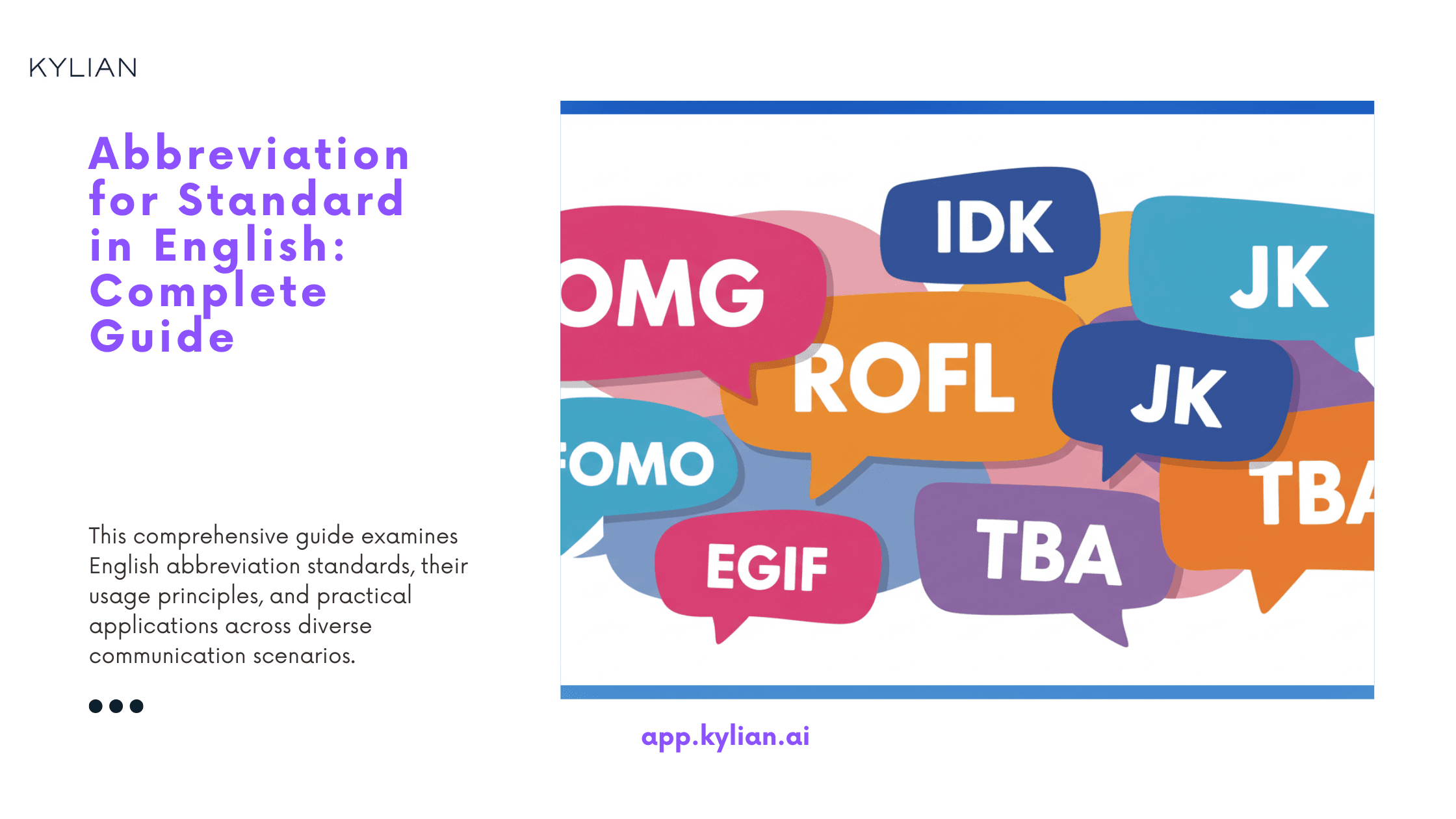Where Most People Come to Learn A Language
Our blog covers language learning tips and hacks we've acquired over the years
![What is the abbreviation for yards? [English]](/_next/image?url=https%3A%2F%2Fcdn.sanity.io%2Fimages%2F147z5m2d%2Fproduction%2F4079cd1014fbfe6e6358690419279de3cf570825-2240x1260.png&w=3840&q=75)

What is the abbreviation for yards? [English]
The standard abbreviation for yards is "yd." When measuring distances, particularly in countries using the imperial system, this two-letter abbreviation represents the unit of length equal to three feet or 36 inches. Understanding this abbreviation is essential for accurate communication in various contexts, from sports and construction to fabric purchasing and everyday measurements.


Boost Your Vocabulary with English Adjective Synonyms
Language acquisition extends far beyond memorizing words and phrases. It demands the ability to deploy these linguistic tools seamlessly in everyday conversation without hesitation. This represents the fundamental distinction between passive vocabulary recognition and active vocabulary implementation. Contemporary communication has become saturated with predictable, overused terminology that barely registers in our consciousness. Replacing these mundane expressions with vivid alternatives transforms your communication into something more compelling and emotionally resonant. For writers, a robust English vocabulary enables the development of a distinctive voice and establishes the atmospheric elements of your work. Consider the stark difference between "the weather was bad" and a more nuanced description that creates a specific emotional landscape for readers. English language learners preparing for standardized tests like IELTS (British English-focused) or TOEFL (American English-focused) gain significant advantages from vocabulary enhancement. Their performance metrics directly correlate with lexical diversity and precision. While numerous methodologies exist for vocabulary development, mastering synonyms and incorporating them consistently represents one of the most efficient pathways to linguistic sophistication.


Japanese Punctuation: A Complete Reading & Writing Guide
Learning Japanese demands significant effort—mastering three writing systems, thousands of characters, and complex grammar rules. Many language learners focus exclusively on vocabulary and grammar while overlooking a crucial aspect that can dramatically improve comprehension: punctuation. Japanese punctuation serves as the scaffolding that organizes written language, making it possible to navigate complex sentences with clarity. Understanding these marks doesn't just help with reading—it transforms your writing abilities and strengthens your overall language proficiency.


Mastering Negation in German: Rules and Applications
Learning how to express negation correctly forms a critical foundation for German language proficiency. The ability to transform affirmative statements into their negative counterparts allows learners to communicate with precision and nuance. This comprehensive guide examines the German negation system, providing clarity on when to use "nicht" versus "kein," proper word placement, and common pitfalls to avoid.


Global Urban Pace: Where City Life Moves Fastest
Time has become our most precious commodity. As metropolitan centers continue to expand and intensify, the question emerges: where are the world's busiest cities, and what makes them tick at such relentless paces? Finding moments to develop new skills—particularly language learning—often feels impossible amid the constant motion of urban life. Yet paradoxically, activities like language acquisition can serve as essential counterbalances to our hectic routines. The NHS recognizes language learning as beneficial for mental wellbeing, offering a path to relaxation in increasingly demanding environments. This exploration analyzes global capitals through multiple dimensions of "busyness": population density, working hours, sleep patterns, infrastructure for recreation and education, entrepreneurial activity, and more. By understanding these patterns, we can better navigate the delicate balance between productivity and personal development in urban environments.


Diagnoses or Diagnosis: Which Form is Correct in English?
Language precision matters, particularly in specialized fields like medicine, where the distinction between singular and plural forms can significantly impact communication clarity. The terms "diagnosis" and "diagnoses" represent a prime example of this linguistic specificity. Their correct usage differs contextually, and misapplying them can lead to miscommunication in critical situations.


Mastering "Such As" Synonyms in English: The Complete Guide
Precision in language separates mediocre communication from exceptional discourse. When providing examples in English, many writers default to the phrase "such as," unaware of the rich variety of alternatives that could strengthen their expression. This limitation restricts the flow and impact of communication, creating repetitive patterns that diminish reader engagement. This comprehensive guide explores the full spectrum of "such as" synonyms, examining not just alternatives, but their proper application, contextual nuances, and strategic implementation to elevate your writing. By expanding your linguistic toolkit beyond the standard "such as" construction, you'll develop more sophisticated, varied, and effective communication skills.


Abbreviation for Required in English: Complete Guide
This guide examines the abbreviation for "required" from multiple angles: its standardized forms, contextual applications, and potential alternatives. By mastering this specific abbreviation, you'll enhance both your written communication and comprehension skills in professional settings where precision matters.
![Minimise or Minimize: The Complete Guide [English]](/_next/image?url=https%3A%2F%2Fcdn.sanity.io%2Fimages%2F147z5m2d%2Fproduction%2F44c7629e4f70debc9838b45d66349b0f4f4ae848-2240x1260.png&w=3840&q=75)

Minimise or Minimize: The Complete Guide [English]
Language evolves constantly, shaped by regional variations and historical influences. Few spelling differences capture this evolution as clearly as "minimise" and "minimize." These variations represent more than mere typographical choices—they reflect linguistic identity, cultural heritage, and communication norms across English-speaking communities. Understanding when to use each spelling carries significant practical value for writers, editors, translators, and anyone seeking to communicate effectively across international boundaries. This comprehensive analysis explores the fundamental differences between these spelling variants, their regional usage patterns, and practical applications. By examining historical context and contemporary usage data, we'll establish clear guidelines for navigating this common spelling divergence with confidence.


Mastering the Past Tense of Sit: English Grammar Essentials
The English language presents unique challenges with its irregular verbs, which don't follow the standard "-ed" pattern for past tense formation. Among these irregulars, "sit" stands as a common yet frequently misused verb in everyday communication. Understanding its correct past tense forms unlocks more precise expression and elevates language proficiency.


Abbreviations for Brazil in English: Practical Guide
Brazil represents a significant economic and cultural force in South America and globally. When engaging in international communication, understanding the correct abbreviations for this nation proves crucial for clarity and professionalism. The complexity of abbreviation systems stems from their varied applications across different contexts—diplomatic cables demand different standards than shipping manifests or academic citations. Why does this matter now? In our increasingly connected global economy, Brazil continues to strengthen its position as a vital trade partner and cultural influencer. The precision in how we reference this nation reflects not just technical accuracy but respect for a country of over 214 million people with the largest economy in Latin America. This comprehensive guide explores the standard abbreviations for Brazil in English, their appropriate contexts, and the critical distinctions between them. By understanding these nuances, you'll enhance your professional communications and avoid common pitfalls that could undermine your credibility.


The Plural of Calf in English: A Comprehensive Guide
Language precision matters. When we communicate, the difference between singular and plural forms might seem trivial, but it fundamentally shapes comprehension. The word "calf" presents a fascinating case study in English pluralization – a seemingly simple word that reveals the complexity of our language's evolution. Why focus on the plural of "calf" specifically? Because this particular noun represents a perfect intersection of regular and irregular pluralization patterns in English. Understanding how and why "calf" transforms in its plural form illuminates broader linguistic principles that apply across countless other terms. For language learners, writers, and anyone seeking clarity in communication, mastering these nuances isn't merely academic – it's practical. Let's explore the plural forms of "calf," their contexts, and the linguistic reasoning behind them.


How Can I Understand "No Pun Intended" in English?
Language operates beyond mere communication—it functions as a cultural playground where wordplay reveals both linguistic mastery and social awareness. Among these linguistic devices, puns stand out as particularly fascinating windows into how English speakers manipulate words for both meaning and amusement. The phrase "no pun intended" exists at a curious intersection of humor, language, and social dynamics, functioning simultaneously as a disclaimer and, paradoxically, as an attention-drawing device. Understanding this phrase requires more than just vocabulary knowledge—it demands cultural context, timing awareness, and situational intelligence. Why does this particular phrase matter in English communication? Because it represents a microcosm of how English speakers navigate multiple layers of meaning, manage social impressions, and either embrace or distance themselves from their own wordplay.


How to Learn the Korean Alphabet: Your Complete Guide
The Korean alphabet represents one of the most scientifically designed writing systems in the world—logical, systematic, and surprisingly accessible to newcomers. With over 75 million speakers worldwide and growing international interest driven by Korean entertainment and culture, mastering Hangul (한글) offers a gateway to a rich linguistic tradition that continues to gain global relevance. Hangul's elegant design makes it markedly different from other Asian writing systems. Unlike the thousands of characters needed for Chinese or Japanese kanji, Korean requires learning just 24 basic letters. This fundamental difference makes Korean literacy achievable in a remarkably short timeframe—often just a few days of focused study for the basics.


Mastering the Urdu Alphabet: Complete Guide for Beginners
Mastering the Urdu alphabet establishes the critical foundation for language acquisition. This comprehensive exploration delivers practical knowledge of the Urdu script system, equipping you with the essential tools to begin reading and writing effectively. By understanding the alphabet's structure, connection patterns, and pronunciation nuances, you'll accelerate your path to Urdu fluency.


America's Favorite Holiday Films: A State-by-State Analysis
The holiday season brings traditions, gatherings, and for many Americans, the annual ritual of watching beloved Christmas movies. What we choose to watch reveals cultural preferences that vary significantly by region and state. By analyzing search data across the United States, we've uncovered fascinating patterns in how Americans celebrate the season through film.


Recurrence vs Reoccurrence: What’s the Difference?
Language precision matters. The subtle distinctions between similar terms often separate clear communication from potential misunderstanding. Among these linguistic nuances, the pair "recurrence" and "reoccurrence" presents a particular challenge for English learners and native speakers alike. These terms appear interchangeable at first glance - both referring to something happening again. However, their usage patterns, connotations, and acceptance in formal English vary significantly. Understanding these differences enhances communication effectiveness across professional, academic, and everyday contexts. This comprehensive analysis explores the definitions, etymologies, and proper applications of both terms, offering clarity on when each is appropriate. We'll examine expert perspectives, usage statistics, and practical examples to provide a definitive guide for anyone seeking to communicate with greater precision.


'How Are You Feeling Today' vs 'How Do You Feel Today'
Communication hinges on nuance. The seemingly small differences between phrases can drastically alter the meaning we convey and the responses we receive. This precision becomes particularly crucial when discussing emotional states in English. The phrases "How are you feeling today?" and "How do you feel today?" might appear interchangeable at first glance, but they carry distinct connotations that influence conversation dynamics in significant ways. These subtle variations reflect the complexity of English as a language of emotional inquiry. Understanding these differences empowers non-native speakers to communicate with greater precision and helps native speakers recognize the implicit messages they may unintentionally send through their word choices. This analysis delves into the grammatical structures, contextual applications, and psychological implications of these two common expressions. By examining their differences, we gain valuable insight into the mechanics of emotional communication in English.


Over Time or Overtime in English: Complete Usage Guide
Language precision matters in professional communication. The distinction between "over time" and "overtime" represents one of those subtle linguistic nuances that, when misused, can significantly alter the meaning of your message. These phrases, while phonetically identical in conversation, serve entirely different functions in written English.


The Plural of Leaf in English: Complete Guide
Language evolves constantly, creating fascinating patterns worth exploring. Among these patterns, English pluralization rules present particular challenges for learners and native speakers alike. The word "leaf" exemplifies this complexity perfectly, with its irregular plural form "leaves" diverging from standard pluralization patterns. Understanding how "leaf" transforms into "leaves" requires examining both historical linguistic development and contemporary usage rules. This comprehensive analysis delves into the plural of "leaf," its exceptions, and practical applications that enhance communication precision across various contexts.
![Abbreviation for Pages: Complete Guide [English]](/_next/image?url=https%3A%2F%2Fcdn.sanity.io%2Fimages%2F147z5m2d%2Fproduction%2Fddc0df01a384a4a32afaf290c8c091522d445a52-2240x1260.png&w=3840&q=75)

Abbreviation for Pages: Complete Guide [English]
Effective written communication demands precision and clarity. Whether you're drafting academic papers, business reports, or digital content, understanding standardized abbreviations saves space and maintains professionalism. The abbreviation for "pages" stands as one of the most frequently used reference markers across multiple disciplines, yet many writers remain uncertain about its proper application. This comprehensive guide examines the correct abbreviations for "pages" across various style guides, contexts, and languages. By mastering these seemingly minor but crucial elements, you elevate your writing from adequate to exceptional, ensuring your audience focuses on your message rather than questioning your credibility.


The Meaning of "Toca" in Spanish: Practical Guide
The Spanish verb "tocar" represents a fascinating linguistic phenomenon: a single word encompassing multiple meanings that vary dramatically depending on context. Understanding these nuances proves critical for Spanish language mastery, as misinterpretation of "tocar" can fundamentally alter communication. This comprehensive analysis examines the multifaceted applications of "tocar," providing clarity for learners navigating its complexity. Derived from the Latin "toccare," meaning "to knock" or "to touch," "tocar" has evolved into one of Spanish's most versatile verbs. Its semantic range spans physical contact, musical performance, and numerous idiomatic expressions that Spanish speakers employ daily. This linguistic elasticity makes "tocar" both challenging and essential for non-native speakers.


Abbreviation for Standard in English: Complete Guide
Communication efficiency drives much of modern English usage. We truncate, condense, and abbreviate to convey maximum meaning with minimum effort. Understanding standard abbreviations functions not merely as a convenience, but as an essential literacy skill in academic, professional, and digital contexts. This comprehensive guide examines English abbreviation standards, their usage principles, and practical applications across diverse communication scenarios. Beyond simply cataloging common abbreviations, we explore standardization systems, historical development, and the cognitive mechanisms that make abbreviations such powerful communication tools.


Beef in Slang: A Guide to Conflict in English
Conflict permeates human interaction across cultures, but the language we use to describe these tensions varies dramatically. In English-speaking communities, particularly within urban and youth cultures, "beef" has emerged as a powerful linguistic shorthand for disagreements, feuds, and conflicts. This terminology isn't merely casual vernacular—it represents a sophisticated social code that communicates the intensity, origin, and nature of interpersonal disputes. The concept of "beef" transcends simple disagreement. When someone references "having beef," they're signaling something more profound than a mere difference of opinion. They're pointing to a sustained conflict with emotional investment, often involving damaged pride, perceived disrespect, or violated boundaries. Understanding beef slang provides critical insight into social dynamics, especially in communities where direct confrontation may follow specific cultural protocols. The evolution of this terminology reflects broader social patterns. As communities develop mechanisms to navigate conflict, their language adapts accordingly. Beef slang doesn't just describe conflict—it provides a framework for categorizing it, addressing it, and sometimes, ritualistically resolving it.